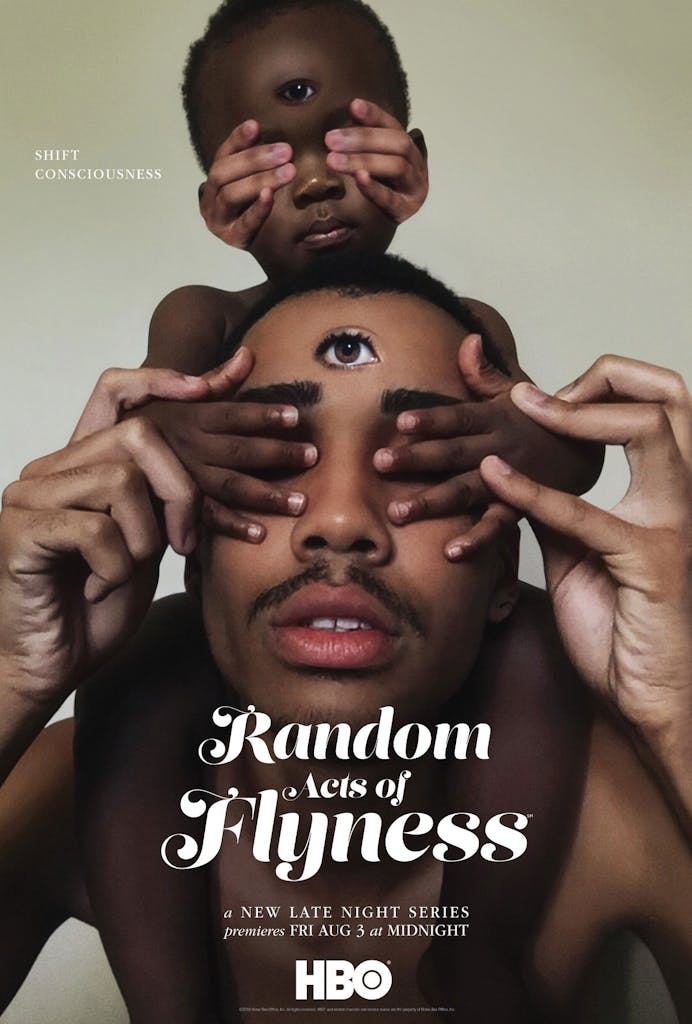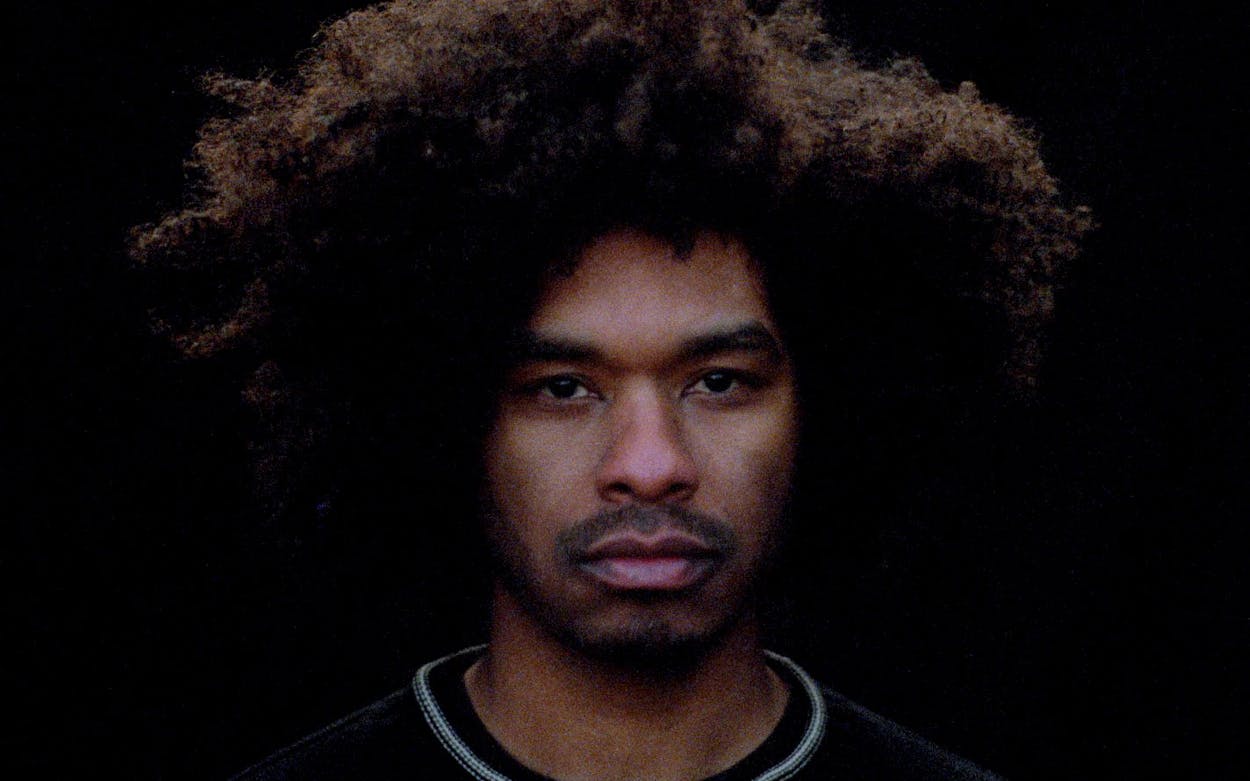Writer and director Terence Nance rides his bike down a New York City street, holding his cell phone. He flips the camera into selfie mode so that his face fills the vertical video screen as he explains the first episode of his show to the audience—or at least he tries to before he’s interrupted by the wailing sirens of a police car, which he ignores until the car cuts in front of him, forcing Nance to crash into it and fall off his bike.
This all takes place in the first minute of the pilot episode of Random Acts of Flyness, a late-night HBO show premiering August 3 at 11 p.m. CT. The show, written and directed by Nance, a Dallas native, is a dreamlike blend of short skits, interviews, music, animation, and video clips. The six episodes will appear weekly on Friday nights.

Nance is best known for his debut movie, An Oversimplification of Her Beauty, which premiered at Sundance in 2012. The feature film employed an array of visual and narrative styles including documentary footage, cartoon animation, and stop motion to tell a complicated story about unrequited love. Random Acts of Flyness uses a similar blend of visuals and formats. The half hour episode, titled “What Are Your Thoughts on Raising Free Black Children?” includes a macabre, grainy cable-access show hosted by a black grim reaper (played by Tonya Pinkins); real footage of police brutality; a stripped-down music video in the woods; and a sleek infomercial for a lotion called “White Be Gone” which erases problematic “white thoughts” (sold by a conflicted Jon Hamm). These segments are interspersed with Nance’s cell phone footage of his increasingly aggressive interactions with the cop he crashed into. The unexpected and visually distinctive elements give the show a surreal quality, but with the prospect of dreams comes the potential for nightmares. With every slightly disorienting transition, you’re unsure of whether the next shot will be pleasant or disturbing.
Nance experienced the unpleasant nature of the unexpected as he made the series. As he recounted to the New York Times, while working in his Brooklyn editing suite during postproduction in June, he saw the news that a white police officer in Pittsburg shot and killed a black teenager named Antwon Rose. The news emotionally derailed Nance, who was unable to continue working until the next day.
Nance’s series has the potential to have a similar disconcerting effect on viewers. During the cable-access segment in the pilot, called “Everybody Dies,” Ripa the Reaper grows increasingly unraveled by the stress of shoving screaming black children through a door to their deaths as alerts keep ringing on the “Death Map” at the back of the stage. At one point, she even shouts “Help me!” into the camera and eventually makes a run for it, only to land right back in the room. Another segment, titled “Acts of State Sanctioned Violence,” is comprised of a series of real-life clips of police brutality. The combination of the two left me in tears and, to borrow Nance’s own words, “kind of shut me down for the day.”
That’s the risk you take when trying to capture both the “beauty and ugliness of contemporary American life,” as Nance explains while riding his bike in the first few minutes of the show. The beauty can be engaging and endearing, like the openness and humor during “The Sexual Proclivities of the Black Community,” in which Nance and co-host Doreen Garner interview a black man who identifies as sexually fluid, or Nance’s attempt to reclaim “blackface” by showing the actual faces of black people. But the ugliness can also be jarring and distressing. After all, even with all its surreal variety, Random Acts of Flyness is an attempt to reflect reality, not to distort it.
- More About:
- Film & TV








